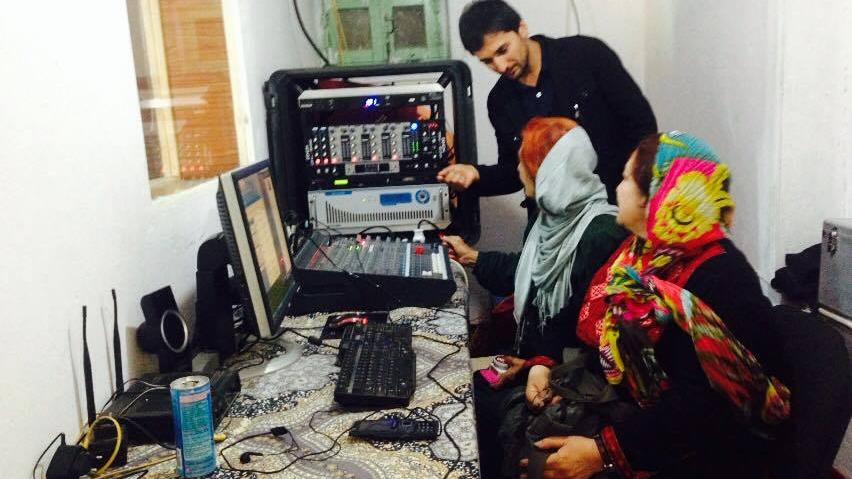KABUL - One of the first radio stations in Kunduz to return to the airwaves following the recent media shutdown caused by the conflict is broadcasting ‘Afghanistan Emrooz’ – a show produced by the UN.
Following the Taliban’s entry into Kunduz in September, many media outlets were closed, with looting and the destruction of equipment, and in some cases the torching of radio and TV stations. Many civilians were killed or wounded, while thousands of people fled the city.
In October UNAMA expressed serious concern at statements from the Taliban that identified specific Afghan media outlets and their staff as military targets. UNAMA urged all parties to the conflict to respect and protect the right to freedom of expression.
Media affected by the conflict in Kunduz included state-run Kunduz RTA, Khawar RTV, Noorin RTV, Roshani RTV, Radio Cheragh, Radio Kaihan, Radio Shayesta, Radio Zohra, Radio Kunduz and Radio Badloon.
After a period of silence, Radio Kunduz, broadcast on 89.6 FM, is among the first local media to restart, along with a small number of other broadcasters including Radio Badloon and state run Kunduz RTA.
Each of the special ‘Afghanistan Emrooz’ radio programmes being run on Radio Kunduz, profile Afghan professionals whose work in key areas in benefitting their communities. The broadcasts, which are in Dari and Pashto, also represent a continuation of the station’s cooperation with UNAMA.
Radio Kunduz officials said the main objectives of their media outlet is to raise public awareness about democratic values and citizen participation, promote human rights and encourage government accountability.
“We broadcast music, news, cultural issues, entertainment, social, political, religious, legal, literary, human rights and other informative programmes in Dari, Pashto and Uzbeki,” said Hedayatullah Zeyarmal, Director of Radio Kunduz.
Mr. Zeyarmal said that 10 staff members are currently broadcasting 12 hours of programming each day. Before the crisis the station broadcast 18 hours each day. The station originally started operations in mid-April of this year.
Under international humanitarian law Afghan journalists are not participants in the conflicts they cover and do not lose their status as civilians. International humanitarian law explicitly prohibits attacks against civilians and acts or threats of violence aimed at terrorizing the civilian population. Additionally, journalists are protected under international human rights law, which protects the right to freedom of expression.
The work of journalists is critical in providing independent and accurate information about the ongoing conflict. Journalists must be guaranteed the highest degree of protection by State and non-state actors.






